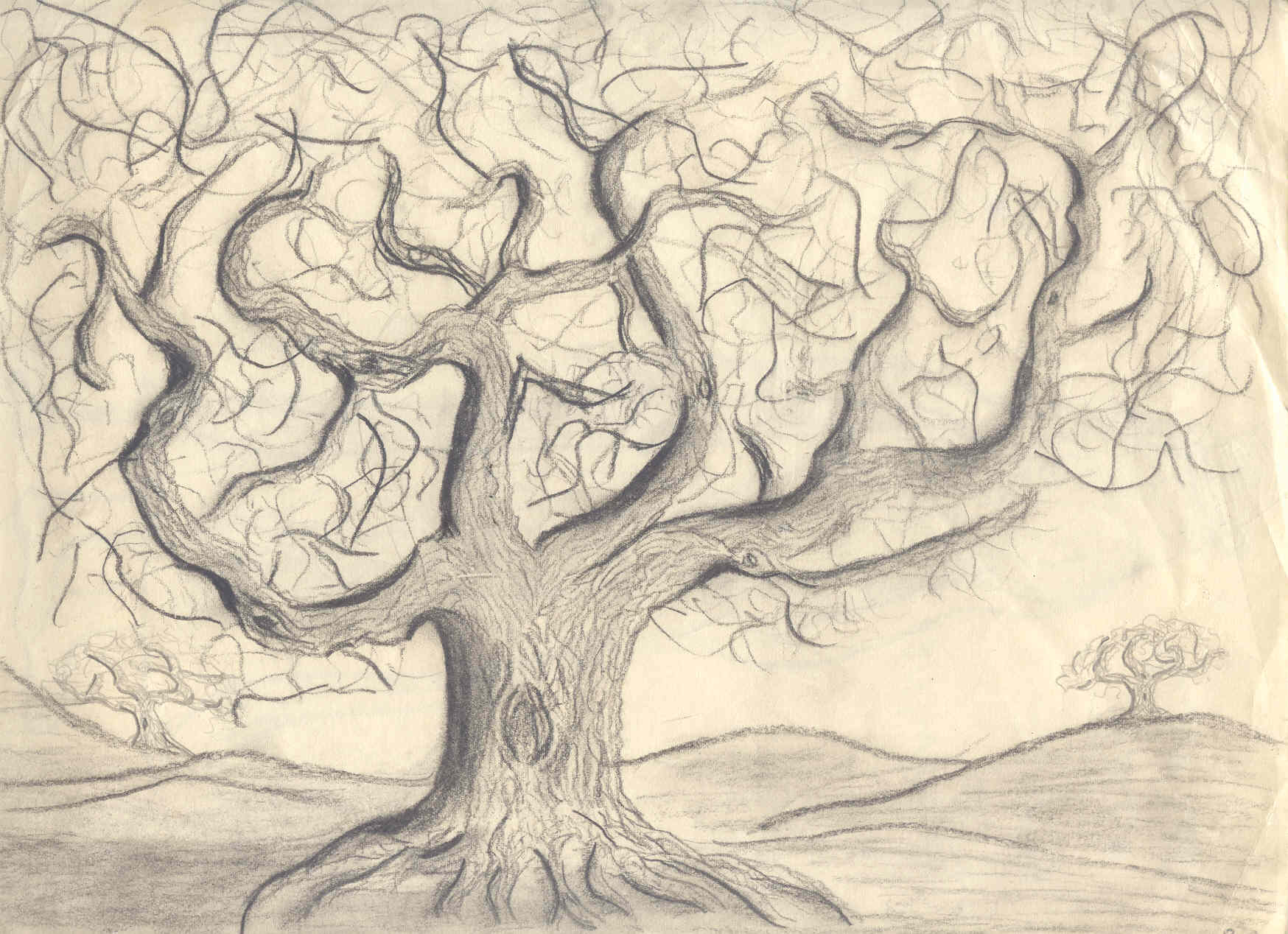'EDGAR SAWTELLE' VS. 'THE OAKS'
A note from Rip Post reader Barbara Weeks, on the news
that Rip is working on a sequel to "The Oaks."

Oak tree drawing by 14-year-old Rip Rense.
I've been thinking about "The Oaks" so much
since I finished reading "The Story of Edgar Sawtelle," an
almost-600 page Christmas gift, a week or so ago.
I pretty much enjoyed the book most of the way because of
its interesting and sometimes beautiful descriptions of
rural Wisconsin sometime around the '70s, and because of a
lot of what seemed to be factual info about dogs and their
training. There was even some suspense! But the end was a
disaster for me -- sad, cynical, and very disappointing.
And then I looked to see who David Wroblewski thanked in
several pages at the end. Guess? Not only the many, many
people he enumerated by name who had read drafts and more
drafts, but the many writers' workshops he had attended here
and there over a period of many years
|
"Why is a book like "The Oaks," of feeling, action,
description, and an ability to remain in my mind
when Edgar will be long forgotten, not picked up for
(official) publication?" |
I only write small time, although in the distant past I
had two pieces appear on the Los Angeles Times
op-ed page (one was later picked up to be a chapter in a
textbook by Cal State Northridge) and I "ghosted" a number
of articles for Tom Bradley, including a speech he gave in
DC that was mentioned editorially by the Washington Post.
Today I write letters and emails! But, anyway, when I'm
turned on about something and interested in expressing it in
written words I really don't think a writer's workshop would
be helpful (I've always hated workshops anyway) and I
certainly wouldn't want lots of folks reading drafts. One
or two would be enough.
Then I started thinking about the book more critically,
and realized that of the three or four main characters I
didn't have a clue as to what was going on with them
internally. Edgar was mute, and spoke only in sign
language. But that certainly shouldn't have kept the author
from telling us what he was actually thinking and feeling,
how he was reacting emotionally to pressures, and why he
thought that he could solve things by running away with
three of the dogs. His mother was a complete enigma, a
female character without breadth or depth. All I know about
her for sure is that she knew how to drive a truck and how
to train dogs. The uncle, the villain, was equally obscure
to me. He went about clearly being the villain, but what
was his motivation, what did he hope to achieve?
So, of course, I contrasted the book in my thinking to "The
Oaks," whose main character still remains clearly in my
mind. And I had to ask: Why is a book like that, of
feeling, action, description, and an ability to remain in my
mind when Edgar will be long forgotten, not picked up
for publication? What is the problem? Are the agents
blind? The publishers?
Well, I suppose it could be like the writer of "The Da
Vince Code" whose other novels were never heard of until
"Da" became a bestseller. And, actually, I liked some of
them better!
So all of that is to say that I'm delighted to learn you're
working on a sequel to "The Oaks." Write on!
![]()